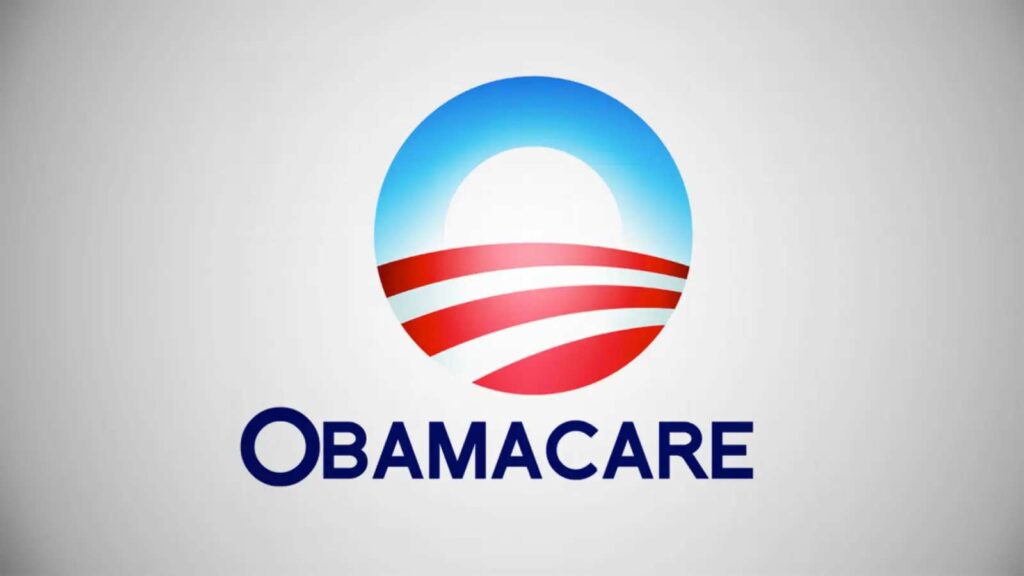If you’re getting the sense that some Republican lawmakers are starting to sweat over their leadership’s refusal to strike a deal with Democrats to end the ongoing government shutdown, it’s probably because voters in their districts are about to feel the sting — particularly when it comes to rising health insurance costs.
Democrats have framed this shutdown, now in its tenth day, around one central issue: Republicans are blocking an extension of the Affordable Care Act subsidies, more commonly known as Obamacare. Those subsidies currently help over 24 million Americans afford health coverage if they don’t receive insurance from their employer or qualify for Medicaid or Medicare.
The subsidies expire on December 31, just three weeks before the 2026 open enrollment period for Obamacare begins. Without an extension, millions will see their premiums more than double — an economic shock that will hit hardest in states that backed Donald Trump during the 2024 election.
According to KFF, a respected nonpartisan health policy organization, 77% of the 24.3 million people enrolled in Obamacare live in states won by Trump. Moreover, 93% of them rely on subsidies to afford their plans.
That data explains why even some of Trump’s most loyal allies, like Rep. Marjorie Taylor Greene of Georgia, have broken ranks. On October 6, Greene took to social media to warn that her adult children’s insurance premiums would double if the subsidies vanish.
I was not in Congress when all this Obamacare, “Affordable Care Act” bullshit started. I got here in 2021. As a matter of fact, the ACA made health insurance UNAFFORDABLE for my family after it was passed, with skyrocketing premiums higher than our house payment.
— Rep. Marjorie Taylor Greene🇺🇸 (@RepMTG) October 6, 2025
Let’s just say… pic.twitter.com/hKH7pPh6CG
The average Obamacare subsidy sits at $550 per month, KFF reports, and in Georgia it averages $573 — covering more than 1.4 million residents. Larry Levitt, KFF’s executive vice president for health policy, pointed out that about 86,000 people in Greene’s own district depend on Obamacare.
In her post, Greene also criticized her party’s leadership for offering “no plan” to extend the subsidies. That’s unsurprising, since House Speaker Mike Johnson of Louisiana and Senate Majority Leader John Thune of South Dakota triggered this shutdown by following Trump’s directive not to negotiate with Democrats — even though passing a funding bill requires Democratic votes in the Senate.
The question now is whether Johnson and Thune are serving their voters or just bowing to Trump. Nearly 277,000 people in Louisiana and more than 50,000 in South Dakota rely on the subsidies that both leaders appear willing to let lapse, according to KFF.
Johnson has brushed off the looming deadline, describing the year-end expiration as “an eternity” away, despite the fact that open enrollment begins November 1. He insists he won’t engage in talks until Democrats agree to reopen the government. Thune has echoed that same stance — no negotiations until Democrats cave.
Meanwhile, Trump’s mixed messaging has made things worse. “If we made the right deal,” he told reporters at the White House on October 6, suggesting flexibility. Hours later, he contradicted himself online, declaring he would not negotiate until Democrats “gave in.”
The inconsistency has left Johnson and Thune scrambling to shift blame while Trump revels in the attention, using the standoff to threaten federal layoffs and program cuts. During an October 9 Cabinet meeting, he appeared unfazed by the shutdown’s toll, saying: “We’re not going to do anything, only good for health care. We’re, really, I think, become the party of good health care.”
For a billionaire president who never has to worry about insurance premiums, that comment underscores just how disconnected he sounds from everyday Americans.
A KFF tracking poll from October 3 shows 78% of adults — including 59% of Republicans, 92% of Democrats, and 82% of independents — want Congress to extend the subsidies. That broad support underscores the political peril for GOP leaders if the shutdown drags on.
If Trump continues to appear gleeful — and, at times, incoherent — about both the shutdown and rising health costs, pressure will mount on congressional Republicans to break ranks and negotiate. Eventually, they’ll have to decide whether to represent their constituents or keep marching to Trump’s disastrous orders.



